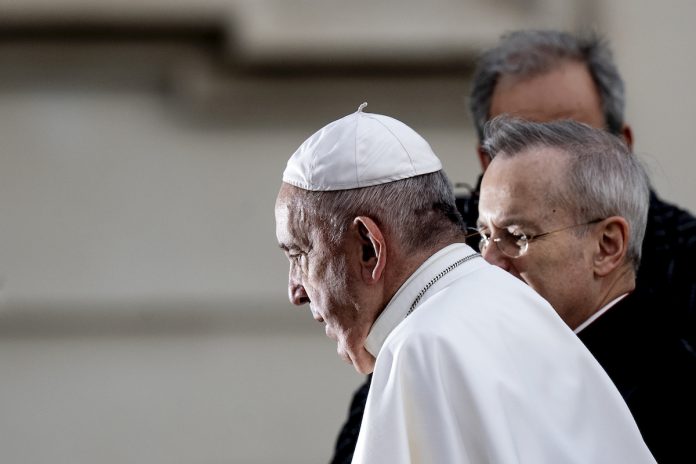Pope Francis has put a further spotlight on the Italian health services’ struggle to cope with the new coronavirus outbreak, by backing a prominent journalist’s complaint that tax dodgers were partly to blame.
The comment came as Italy’s chronically under-funded public hospitals have been pushed to breaking point at the epicenter of the contagion in the north, and as others in less affluent regions scrambled to prepare for an onslaught.
Pope Francis, who is secluded in the Vatican and holding his general audiences over the internet instead of before crowds in St. Peter’s Square, spoke in an interview conducted by phone and published in the Rome newspaper La Repubblica on March 18.
He said he was “very impressed” by an article by journalist Fabio Fazio, who listed 15 lessons he learned from the new coronavirus crisis, and quoted one of them in its entirety.
Fazio wrote that the crisis should spur people to appreciate what really matters in life, such as personal relationships, solidarity and respect for the environment and to demand that politicians govern with responsibility.
“It has become evident that those who do not pay taxes do not only commit a felony but also a crime: If there are not enough hospital beds and artificial respirators, it is also their fault,” Pope Francis quoted verbatim from the article.
According to Italian Treasury figures last September, tax dodgers cost the country 109 billion euros on average each year between 2013 and 2015. Italy has the highest level of Value Added Tax evasion in the EU, the European Commission says.
The death toll in Italy rose to 2,503 on March 17. At his March 18 audience, Pope Francis, who has condemned tax evasion in the past, praised Italian medical staff and volunteers who he said were risking their lives to help the sick.
Italy spends more of its budget on healthcare than any sector apart from pensions and has been cutting health costs for decades.
Under pressure to curb the euro zone’s second-largest public debt, Italian governments have slashed funding for regions and in turn regional authorities have targeted health spending, one of the largest items on their own budget.
As a result, the number of hospital beds per inhabitant in Italy has fallen to among the lowest in the euro zone.
Over the past three weeks, 1,135 people have needed intensive care in Lombardy, the northern region hardest hit. It has only 800 intensive care beds, according to Giacomo Grasselli, head of the intensive care unit at Milan’s Policlinico hospital.
Authorities have been working to set up hundreds of intensive care beds in a specially created spaces in Milan and Rome but are still waiting for sufficient respirators and qualified personnel.









